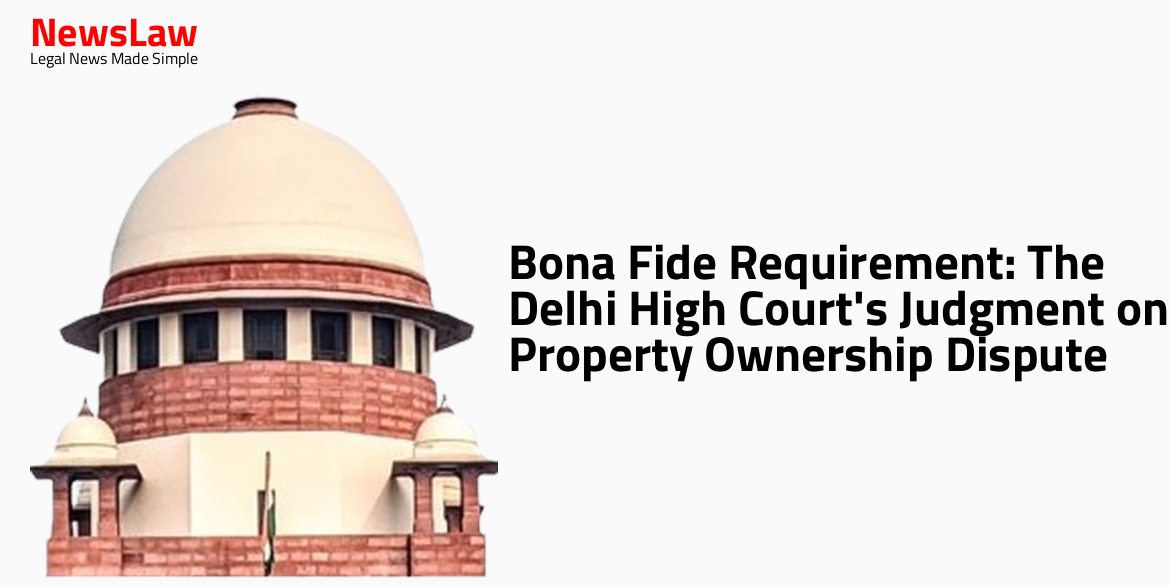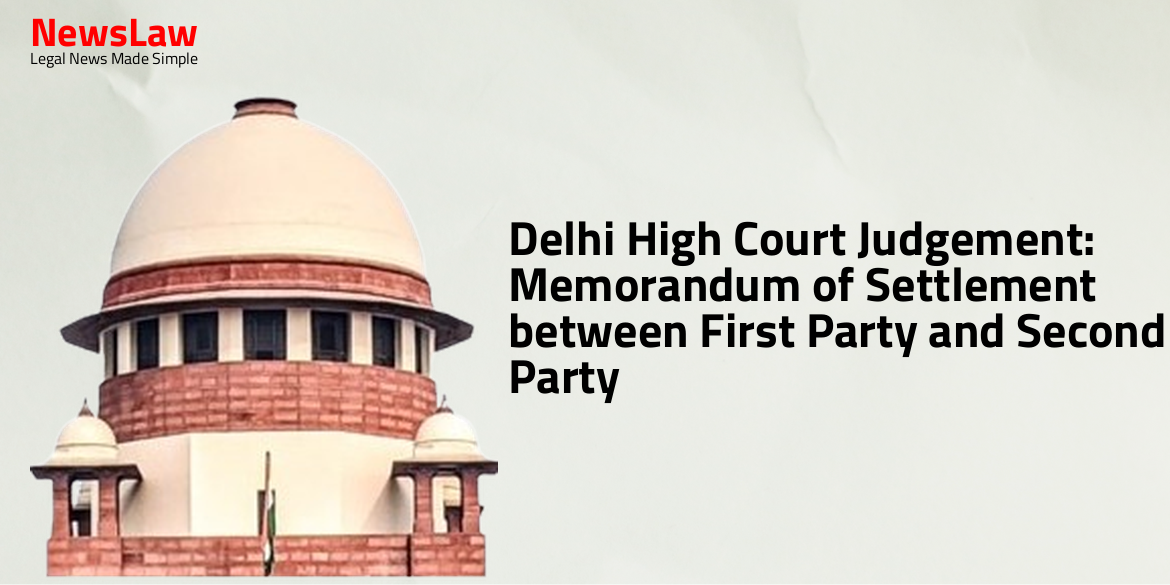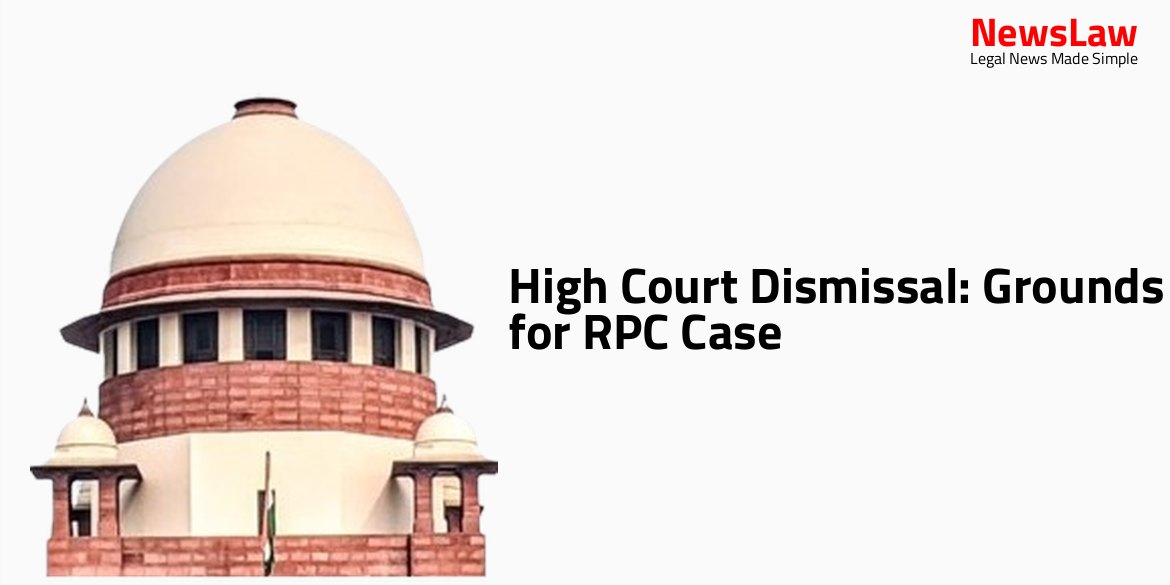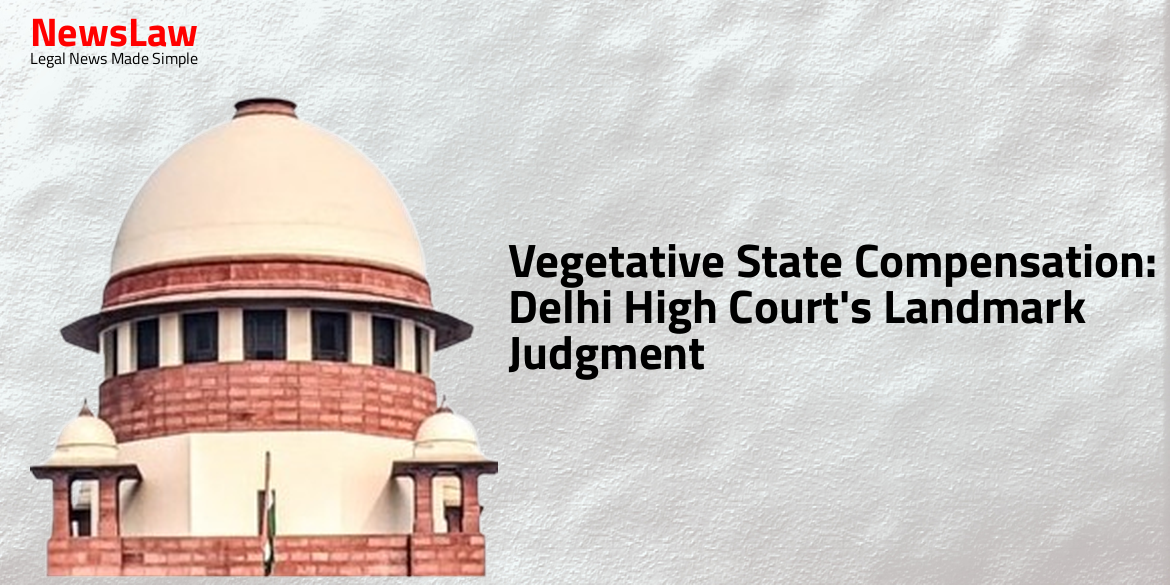Exploring the recent Delhi High Court judgment, this case delves into a property ownership dispute with a focus on the concept of bona fide requirement. The case involves a disagreement between two parties over property ownership rights, shedding light on the intricacies of legal proceedings. Stay tuned to uncover the details of the Delhi High Court’s verdict on the property dispute.
Facts
- Petitioner contended that the respondent is engaged in a luxury bus business and does not need the subject premises as he resides in Chandigarh.
- Petitioner admitted the subject premises are unused and locked, blaming the respondent for not getting repairs done.
- Petitioner claimed previous eviction petitions were dismissed in default, suggesting respondent’s lack of serious need.
- Respondent’s counsel argued that the petitioner’s intention is solely to extort money, as the premises have been unused for 10 years.
- Dismissal of earlier eviction petitions in default was explained by respondent’s illness with cancer.
- No record indicated petitioner approached court for repairs on the premises.
- Financial independence of respondent’s children does not equate to independence for accommodation needs.
- Respondent’s financial status was deemed irrelevant to the eviction proceedings.
- Petitioner’s counsel argued that since respondent did not plead lack of suitable alternative accommodation, the eviction petition should fail.
- Reference was made to the case of Abid-ul-Islam vs Inder Sain Dua to support the argument.
Issue
- There is no dispute that the present respondent is the owner of the subject premises
- There exists a jural relationship of tenancy between the parties
Arguments
- Petitioners argue that respondent’s requirement for the subject premises is not bona fide as his children are financially independent and he owns alternate accommodation.
- Respondent refutes ownership of Greater Kailash and Punjabi Bagh properties, stating Hauz Khas property is residential and under renovation.
- Court previously ruled that the financial independence of the landlord’s children does not invalidate the landlord’s requirement for tenanted premises.
- Petitioners claim three properties owned by respondent in Hauz Khas Enclave, Greater Kailash, and Punjabi Bagh, as alternate accommodation.
- Court rejects hyper-technical approach to the availability of alternate accommodation as seen in previous cases.
- Petitioners argue for the first time in rebuttal that eviction petition should be rejected due to lack of specific pleadings about respondent’s ownership of alternate accommodation.
- Petitioners claim respondent does not have any reasonably suitable alternate accommodation.
- This argument is raised for the first time during rebuttal stage of the case.
Analysis
- The Delhi Rent Control Act aims to protect the interests of tenants and prevent their exploitation for monetary gains.
- The Act does not give the tenant a right superior to that of the landlord for the bona fide enjoyment of the tenanted premises.
- The landlord’s requirement for the premises, based on the financial well-being of his children and the need to provide them with accommodation, is considered bona fide.
- The term ‘dependent’ in eviction proceedings should be interpreted broadly to encompass financial, emotional, and accommodation dependence.
- Emotional dependence between family members, including the landlord and his children, should be considered in determining the bona fide requirement of the premises.
- In Indian society, it is common for a father to desire his children to join and grow the family business.
- Cases of Rajiv Kumar & Anr vs Chaman Lal & Ors and SCON Financial Services Pvt. Ltd vs SC Kaura emphasized the need for tenants to provide evidence in support of their pleadings.
- Granting leave to contest based solely on a tenant’s affidavit, which is denied by the landlord, can lead to unnecessary trials.
- Even on the first hearing date, the previous bench and petitioners’ counsel were not convinced of the case’s merits.
- Financial affluence of the landlord does not affect proceedings under Section 14(1)(e) of the Act, as genuine family dependency is not solely financial.
- The term ‘family’ in the context of dependency can have a broad interpretation, including emotional and professional relationships.
- In the case of Corporation of the City of Nagpur vs The Nagpur Handloom Cloth Market Co. Ltd., the Supreme Court acknowledged that ‘family’ can extend beyond blood relations.
- The respondent’s family, who hold shares in JCBL Limited, require a guest house for their son’s frequent business visits to Delhi.
- It is reasonable for a father to provide convenient accommodations for his son’s work-related stays.
Decision
- No infirmity found in the applications
- No perversity detected in the applications’ dismissal
Case Title: DR ARUN PURI & ANR Vs. RAJINDER KUMAR AGGARWAL (2024:DHC:4437)
Case Number: RC.REV.-560/2019



